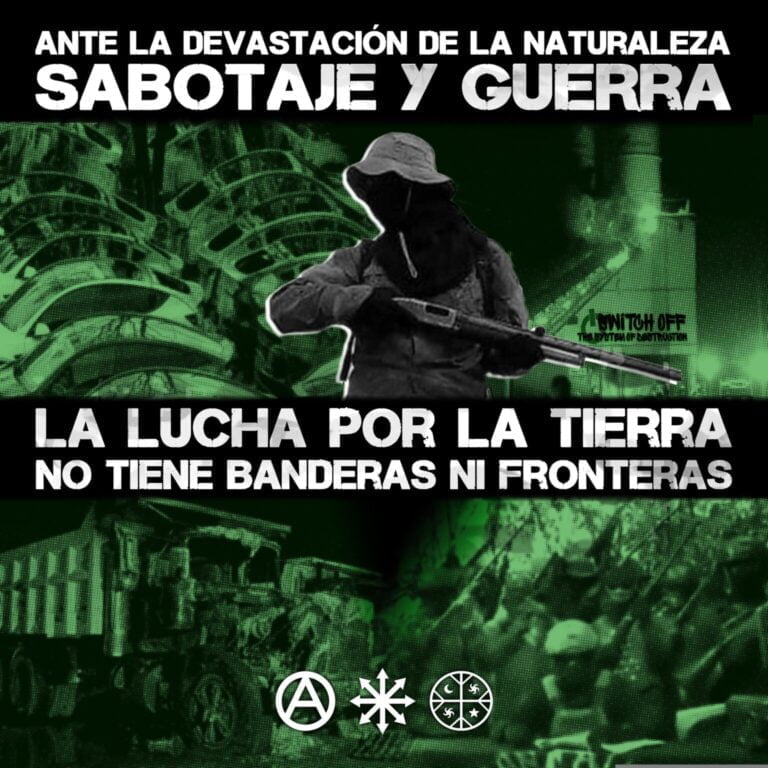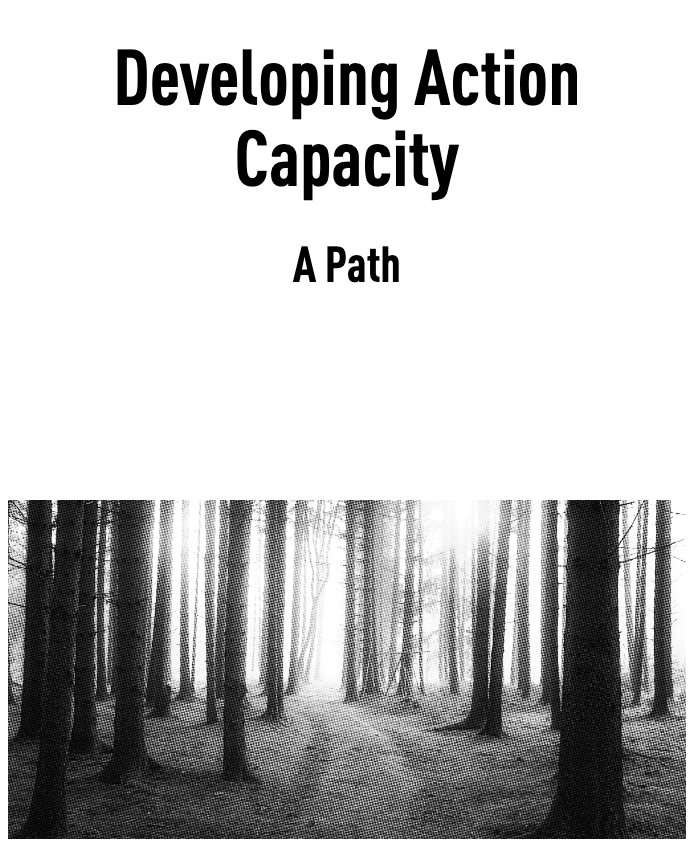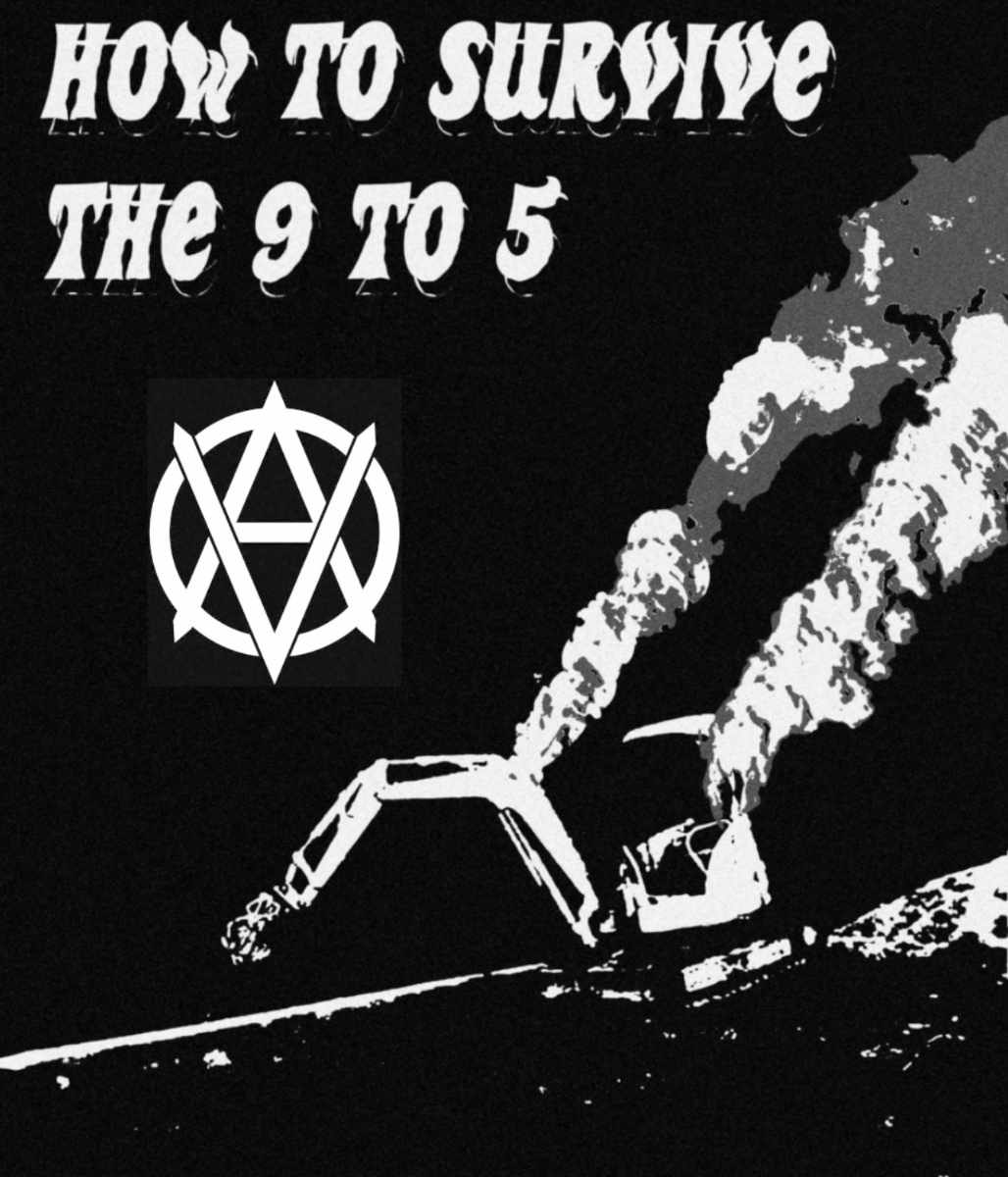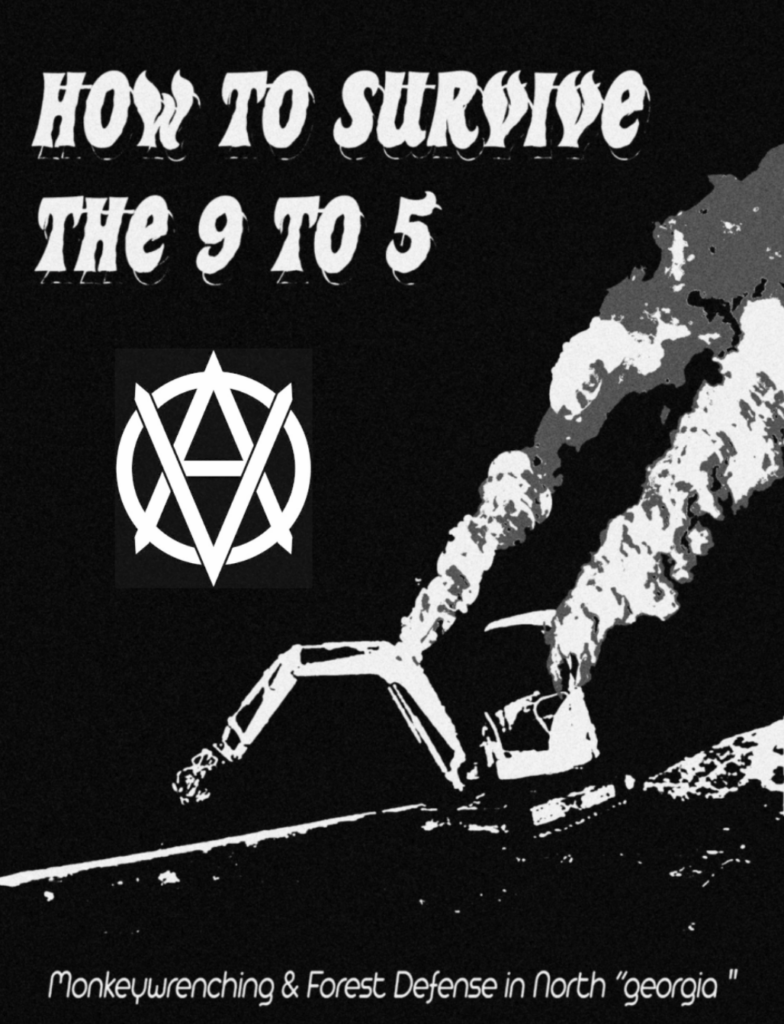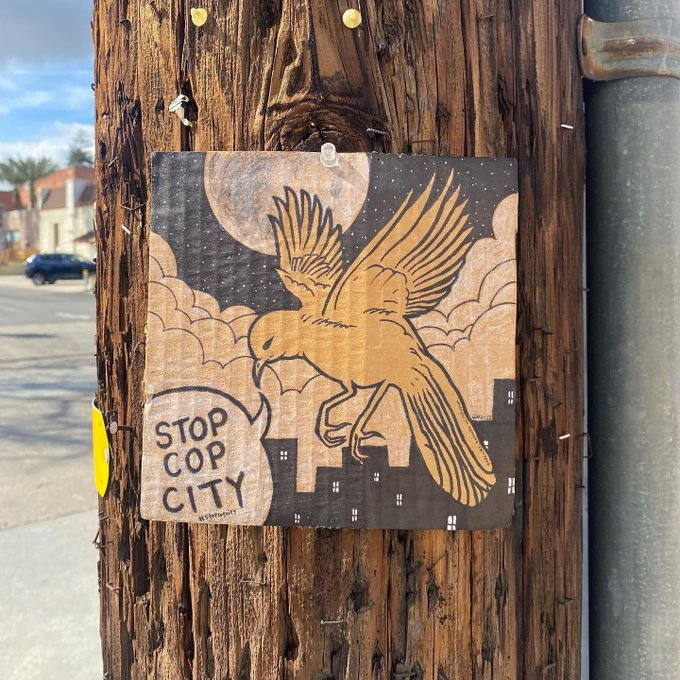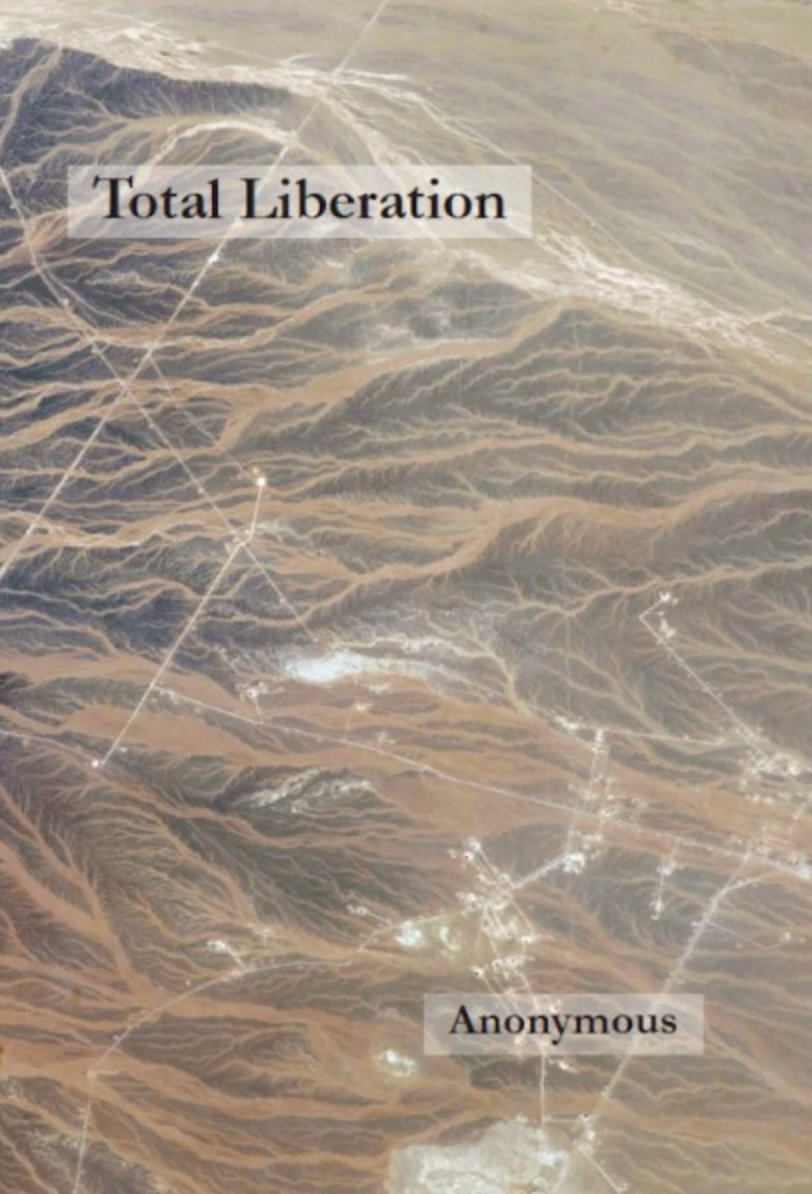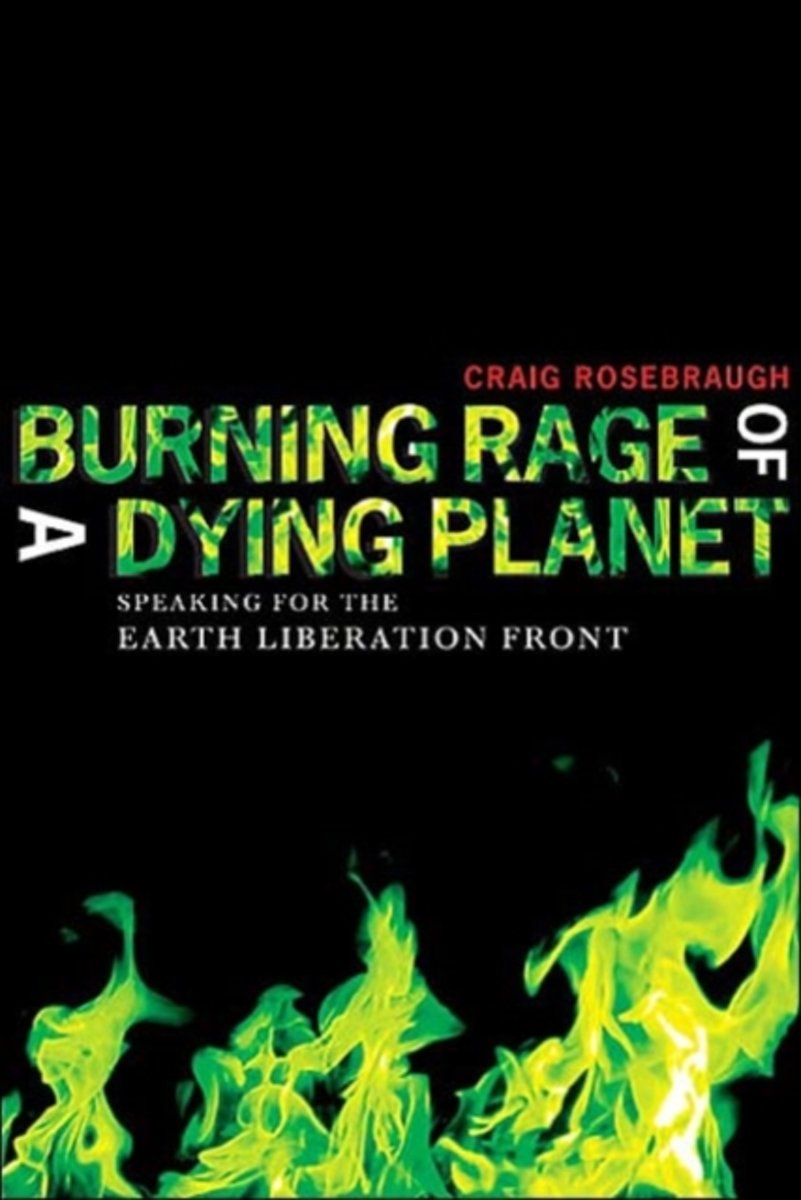[Editor’s note: We received this text a couple of weeks back and had not had time to translate it properly. Thanks to Act For Free! for providing.]
Faced with devastation: sabotage and war!
As the comrades who have raised and formed part of the campaign have understood it, “Switch Off! The system of destruction” consists of the “attack against companies and infrastructures that feed the ecological catastrophe across the world”. Here also, in Abya Yala (ancestral name for the territory known as America), multiple struggles for the defense of the earth have been developed, from the precolonial peoples who continue fighting, to new anarchic perspectives that tip more and more into the struggle for the earth. While we haven’t been able to stop the ecological catastrophe entirely, we can find concrete examples of territorial victories that have managed to stop, expel or at least considerably push back the materialization of extractivist projects, like the resistance and armed offensive of diverse mapuche organizations in Wallmapu.
The struggles in different latitudes aren’t detached form one another and they aim at the same enemies. This is why we believe it favorable to make the “Switch Off!” campaign our own, endowing it with our own territorial circumstances to avoid overlooking our particularities.
The history of Abya Yala has been characterized by pillage and assault by various imperialist hands and powerful economic groups, both local and transcontinental, belonging to the same machinery of exploitation and theft. Today we continue to be the cornerstone of capitalism and its new twist “green capitalism”, the supposed “sustainable” version, finding ourselves with new interests perpetuating ecocide. One of these is lithium extraction that today plays a fundamental role for the reformulation of the system of depredation as was once the case with oil, whose disastrous consequences we already know all too well. This is how the parasitic logics continue over the territories called “developing” or “third world”, that at the cost of destruction make possible and sustain the status and quality of life of the “first world”.
But faced with the manifold forms of exploitation, the expressions of combat and resistence carried out in different territories are also manifold. This is demonstrated by the communities inhabiting the amazon jungle that confront deforestation, displacement and the destruction of ecosystems, a situation that is repeated across the continent. Also the various environmental struggles, especially pursued by state intelligence, its armed wing and the corporate hitmen, showing the discomfort and annoyance that these conflicts generate in power even when they are partial or even addressed only by legal means. Likewise, there is the anarchic offensive that is part of these conflicts, as in the north of the continent where the comrades of the “Coordinadora de mujeres anarquistas por la defensa de nuestro cuerpo-territorio” [Coordination of anarchist women for the defense of our body-territory”] sabotaged the works of the ecocidal “Tren Maya”[2] project, or the resistance in the defense camp in the “Atlanta Forest” where a police training center is being built, and where anarchist comrade Tortuguita was killed in the course of the clashes. [3] On the other hand, the situation in the south of the continent is very similar, in the territory dominated by the chilean state, where these attacks spread and expand: in the Maule region, the “Grupo Autónomo Revolucionario del Maule” [Maule Autonomous Revolutionary Group] attacked machinery of a concrete and asphalt factory [4]; in the Metropolitan Region the “Célula Anárkika Boske Negro” [Black Forest Anarchic Cell” attacked a telecommunications antenna located on an urban hill [5], the “Célula Insurreccional por el Maipo – Nueva Subversión” [Insurrectional Cell for the Maipo – New Subversion] attacked a concrete factory [6] and a refrigeration factory and slaughterhouse [7], both located along the same river, and the “Nuevas Subversiones Anárquicas – Célula Alex Nuñez – FAI” [New Anarchic Subversions – Alex Nuñez Cell – FAI] attack
ed the “Oxiquim” [8] factory with explosives, just to name a few of the claimed actions of the last period. This is not to leave aside or devalue other attacks that, without being explicitly for the earth, target and attack the same power that degrades the planet.
Considering our similarities and particularities, as well as the urgencies and necessities that bring us together, we find it relevant to adhere actions against the machine of degradation on this continent and the world to the campaign “Switch Off!, with the goal of strengthening our struggles and deepening the combat against the existent and its historically internationalist character, visibilizing on a global level the urgency of negating this reality in practice with everything we have at hand, demonstrating through action that its possible to fight, returning the pain to those responsible, the creators of these conditions, and that it’s possible to embrace a dignified life that breaks with the misery in which they want to suffocate and bury us.
“Remember that the mechanisms of subjugation and control surround us. Wherever you are, you don’t need to venture very far to find the veins of industry; go and cut them”.
We redeem the memory of the comrade Emilia Bau, who was assassinated in a conflict for the defense of the water in Mapuche territory, the comrade Santiago Maldonado who became part of the Mapuche struggle and who was disappeared by the Argentinean state in the course of confrontations with police, and later found dead. Also the weichafes Matías Catrileo and Pablo Marchant, who were assassinated by the police in Wallmapu while exercising territorial control and sabotage, respectively, against colonizers and loggers.
Freedom to anarchist, subversive and mapuche prisoners!!
For anarchy, for the earth, for our lives.
Célula Insurreccional por el Maipo – Nueva Subversión
[Insurrectional Cell for the Maipo – New Subversion]
[1] https://informativoanarquista.noblogs.org/post/2024/01/17/acerca-de-la-campana-de-ataque-switch-off/
[2] https://es-contrainfo.espiv.net/2023/09/20/estado-mexicano-adjudicacion-de-atentado-explosivo-contra-camion-de-carga/
[3] https://informativoanarquista.noblogs.org/post/2024/01/30/ee-uu-y-paises-bajos-en-memoria-de-tortuguita/
[4] https://es-contrainfo.espiv.net/2021/12/14/estado-chileno-adjudicacion-de-atentado-incendiario-contra-la-empresa-aridos-bullileo-y-asfaltos-maule/
[5] https://es-contrainfo.espiv.net/2022/06/13/santiago-chile-adjudicacion-de-atentado-incendiario-contra-antena-de-telecomunicaciones/
[6] https://informativoanarquista.noblogs.org/post/2022/10/03/atentado-incendiario-contra-5-camiones-de-la-empresa-de-aridos-baeza-reivindicado-por-celula-insurrecional-del-maipo-nueva-subversion/
[7] https://informativoanarquista.noblogs.org/post/2023/10/02/chile-adjudicacion-de-ataque-incendiario-a-faenadora-y-frigorifico-cordillera-del-holding-dinacar/
[8] https://informativoanarquista.noblogs.org/post/2022/11/29/intento-de-atentado-explosivo-contra-oxiquim-s-a-reivindicado-por-nuevas-subversiones-anarquicas-celula-alex-nunez-federacion-anarquista-informal/

